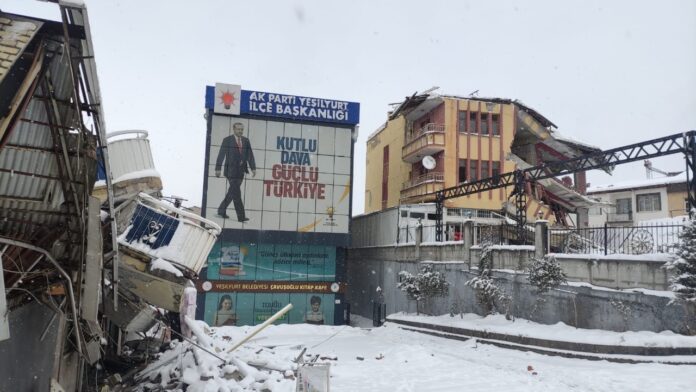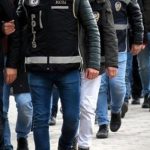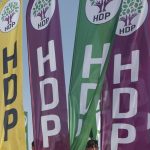Erdogan should be no stranger to seismology. This is, after all, the man who won ‘landslide’ victories in multiple Prime Ministerial and Presidential elections, the man whose Justice & Development party was heralded as shaking the foundations of Turkish civil society, the man who is no stranger to a political earthquake. Yet, last month’s devastating quakes across Turkey (and Syria) have placed Erdogan himself squarely at the epicentre of a growing row over the current state of all things Turkish and the country’s future direction – and of Erdogan’s own future. The President may be about to experience his own very personal, and damaging, aftershock.
With at least 45,000 dead and countless thousands more missing, and immediate damage estimated at US $34bn, Turkey’s short-term future is bleak. Millions are homeless amid an inadequate (in every sense) recovery effort, and the direct economic hit is, according to the World Bank, equivalent to 4% of Turkey’s yearly economic output – these are gut-punches that any country would find it hard to recover from. Yet, as painful as the situation is now, in the long-term it can only be envisaged as even worse. Not only is there the element of unimaginable human tragedy, but the economic damage done to Turkey, and the paucity of reconstruction efforts, will exacerbate the fault lines already present and growing in the Turkish economy – setting back what minimal progress had been made and exposing the inadequacy of the system as it currently stands.
Erdogan’s personal culpability is unavoidable. Never one to back away from turning tragedy to his advantage, he first cited the earthquakes as ‘fate’, thereby attempting to immediately absolve himself of responsibility, before ordering a delay to the military relief response so that he could get there ‘first’ for the photo-ops and headlines, while proceeding to arrest any journalist discussing the quake, and Erdogan’s (in)activity, in a negative manner. These instances alone cast his leadership qualities and fitness for office in the worst possible light, but apparent about Erdogan since the quake has been his air of defensiveness and desperation – that he knows this could finish him off.
The signs have been there for some time: a leader who was initially genuinely popular becoming more autocratic and repressive; a politician (and party) standing on an anti-corruption platform being embroiled in exploitation and sleaze at virtually every turn; a qualified economist trashing the country’s economy to the point where inflation is officially at 85% (but may be double that in reality) and where two thirds of the population cannot afford food and rent. Keeping interest rates historically low even in the face of rampant inflation was a personal decision made both out of religious conviction and political expediency, given that the big business funders of the AKP made significantly more profit on cheaper loans, yet served only to solidify Erdogan’s support among the conservative Islamic base and the economic elite. And the collapse in the value of the lira (not helped by the curtailing of the Central Bank’s independence from government) has not only acted as a deterrent to foreign direct investment and business establishment, but caused a ‘brain drain’ of young educated Turks who see no viable future in their own country.
This is a record of authoritarianism, isolation and ineffectiveness that collectively (perhaps fatally) damaged Turkey’s prospects even before February’s disaster. However, in the weeks since the quakes, Turkey’s – Erdogan’s – ‘earthquake policies’ are now coming under greater scrutiny and fuelling even greater resentment. For instance, the ‘earthquake tax’ introduced after the 1999 disaster in Izmir, with all revenues supposed to go towards preparing for the next catastrophe, yet about which the government has been consistently cagey with little indication that the money was ever spent properly, if indeed at all. Or Erdogan’s ‘construction boom’ after taking office, where multimillion contracts were awarded to friends and associates of the AKP for buildings that were ultimately unfit for purpose and the suggestion that Erdogan leveraged support and funding from the construction industry in return for permissive and lax regulation that, now, has directly contributed to Turkey’s greatest tragedy.
Ultimately the latest earthquake, the inadequacies it exposed in the AKP and the yet-more-dire consequences it will have for the Turkish economy, will drive Western businesses further away from Turkey. Nature however abhors a vacuum, and Erdogan – who has never cast Putin out in the cold as has the rest of Europe – may well seek greater financial, and political, assistance from Moscow, with the two strongman who have destroyed their own economies perhaps building an alliance of convenience that would have serious repercussions for both the West’s on-going unified front in support of Ukraine, and continued lines of Russian influence and control throughout Asia and Europe. None of this should detract from the very real humanitarian crisis in Turkey, nor the impact of the lira’s crash and the general state of the economy on those businesses who saw Turkey as a market on its own merits and with its own value – but it would be disingenuous to not pass comment on how, even when things are bad, Erdogan is likely to make them worse.
Erdogan cannot be blamed for the earthquake, but he can absolutely be blamed for a response that was delayed and inadequate in every sense, for colluding with politicians and businessmen in the pursuit of long-term economic policies proven to be detrimental to the country, and for refusing to change course even when such an unimaginable disaster exposes the weaknesses that he himself has created. In this regard, the upcoming elections in June 2023 are Erdogan’s, and Turkey’s, biggest acid test yet. The vote will serve as a referendum on Erdogan’s earthquake response as much as his general economic and political pathways, and it is expected that he will face a genuine struggle to retain power, with the opposition’s inability to present a unified front being their biggest failing. The quake may change all that – this may be the line which for many, is too far. Erdogan is a political survivor, who has seen off a military coup, laughed off the opprobrium of the West and consolidated power even as he destroyed his country’s democratic and economic fabric. Now though, he may finally be finding himself on shaky ground.
Written exclusively for NAT By: Stuart Poole-Robb, CEO of KCS Group Europe. KCSGE is a London-based firm which has been operating for three decades. It provides risk analysis and due diligence to leading financial and legal institutions around the world.
News about Turkey offers readers different points of view. The opinion expressed in this text is not necessarily shared by the editors of NAT.



